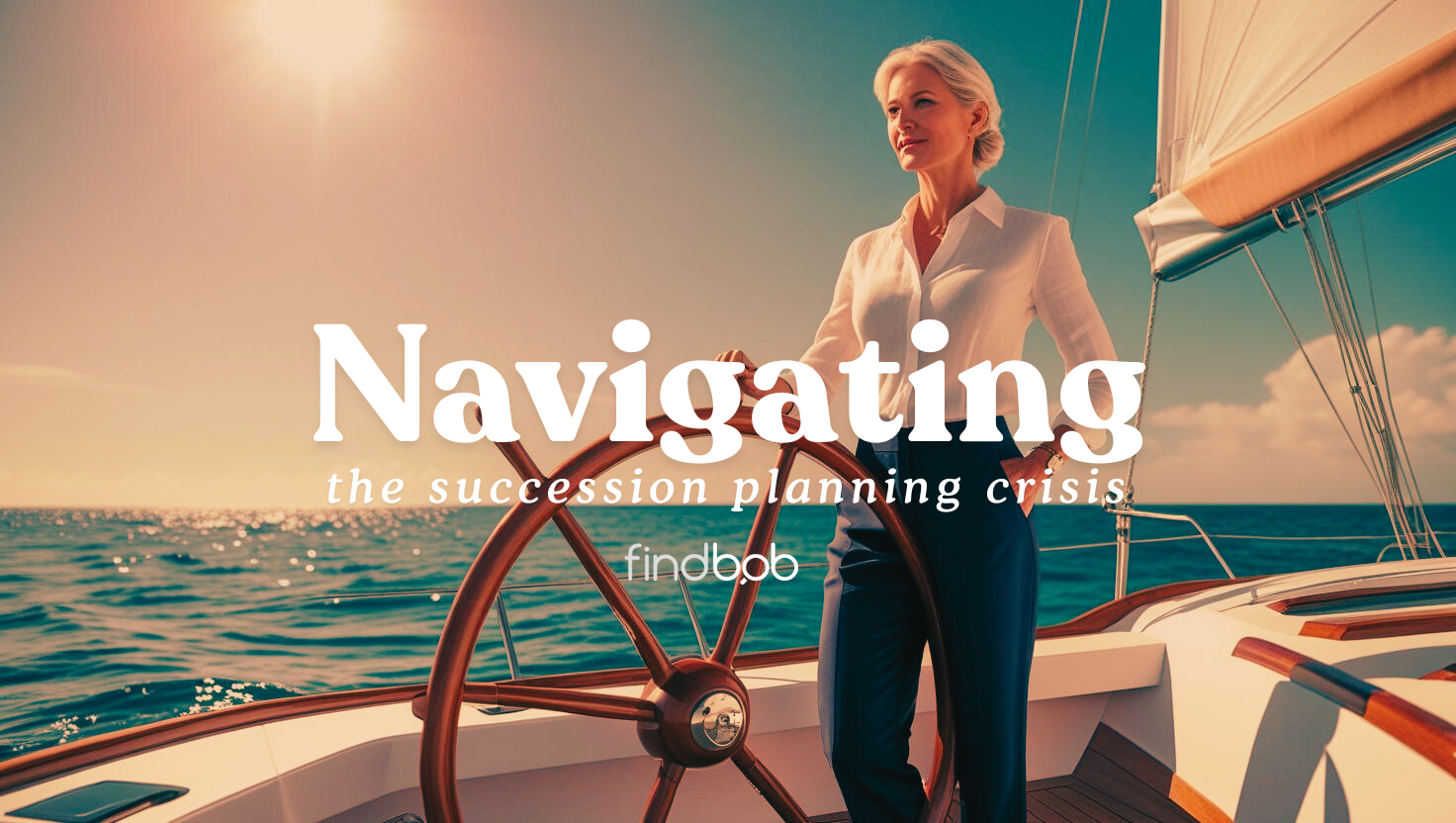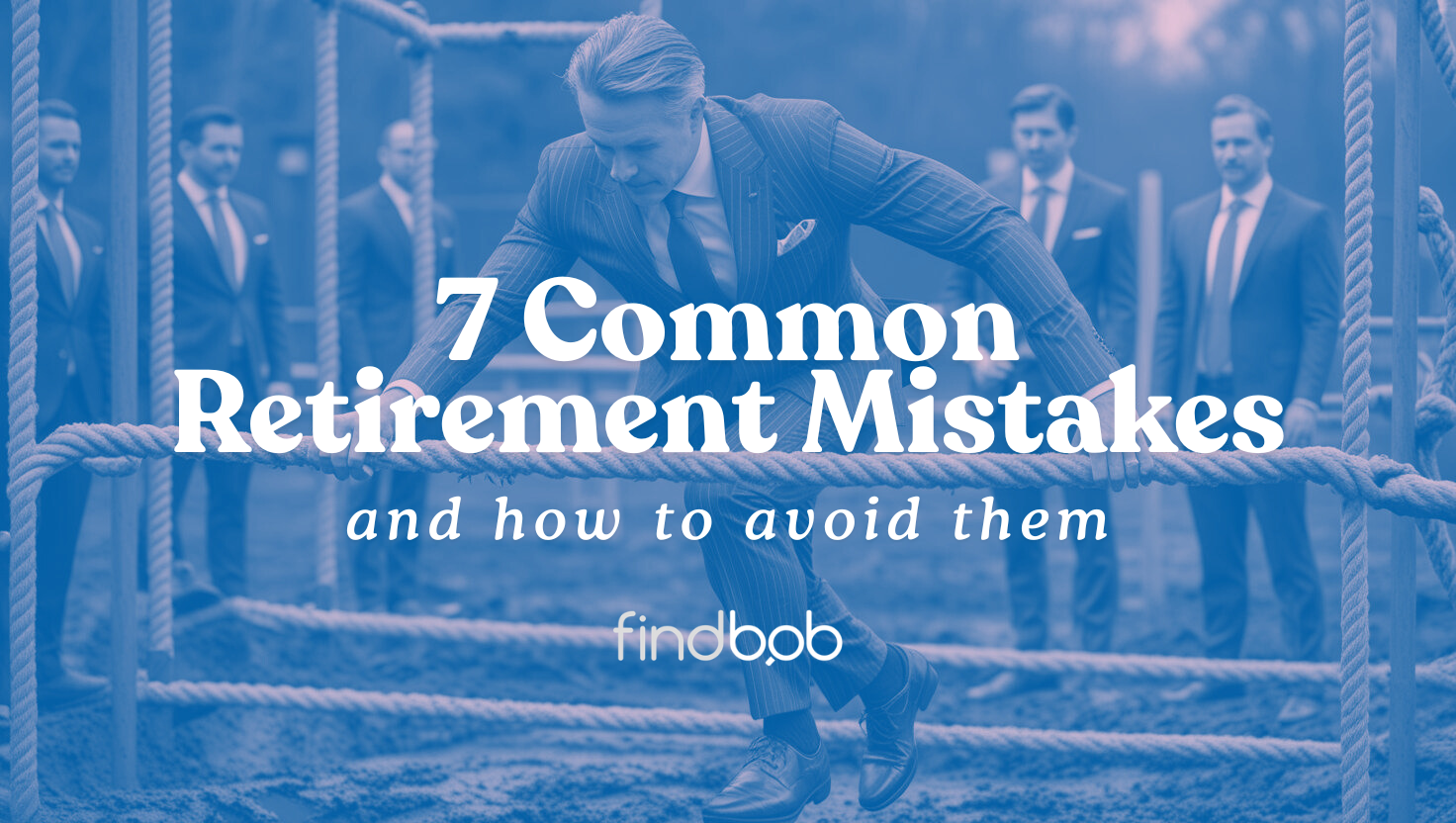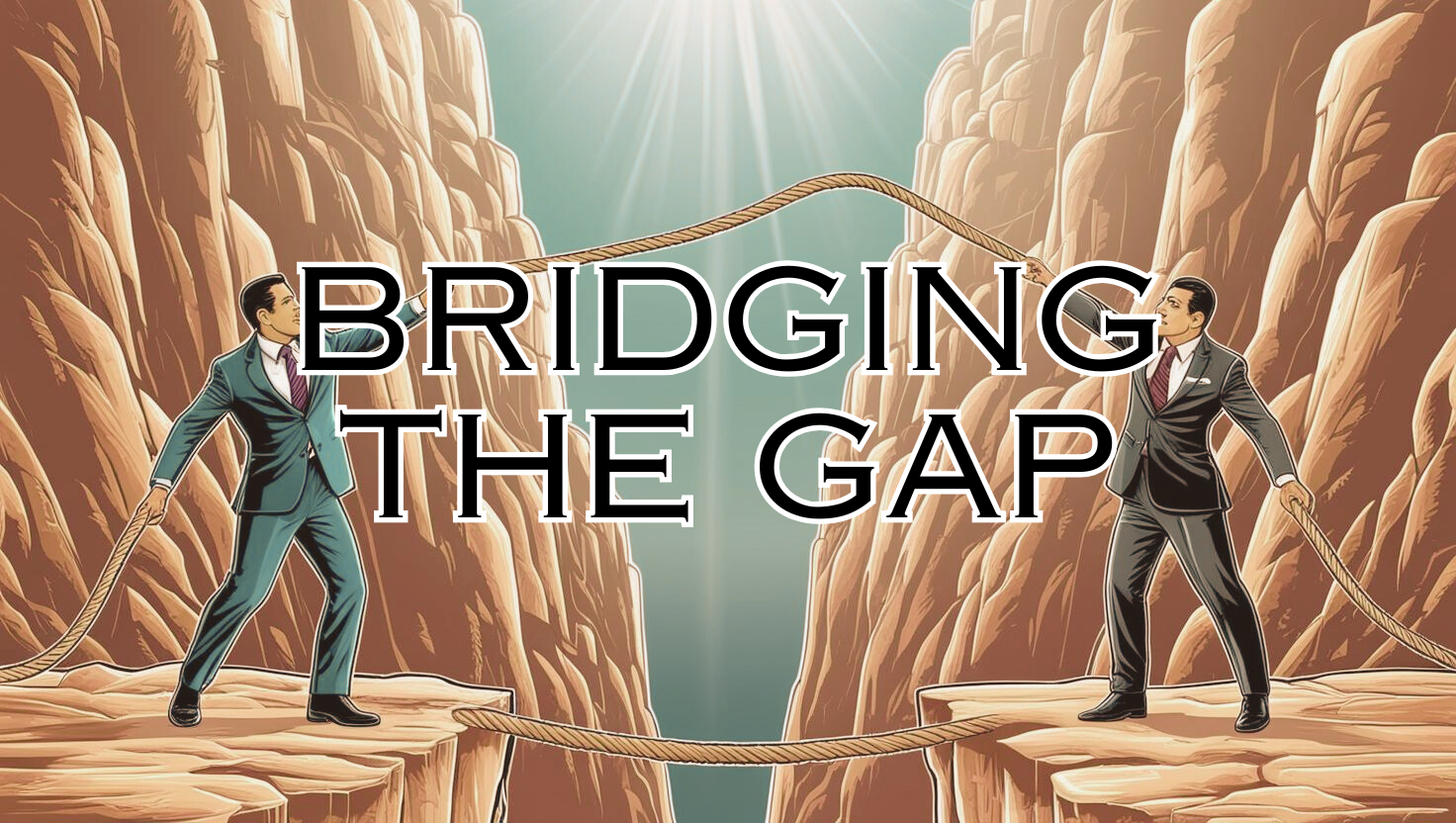Read time: approx. 10 min.
Maybe you're swinging the golf club, “underestimating” your last par, or trekking through the jungle. Or maybe you’re just relaxing in the backyard, enjoying not having to answer a question every 20 minutes or be somewhere like yesterday. Sounds pretty sweet, right? That is, it’s pretty sweet if you’ve created a bullet-proof succession plan that got you the greatest valuation and the right successor.
Great successors aren’t born. They’re found and groomed. But before that all happens, you have to ask yourself the one big question: Are. You. Ready?
So, Are You Ready?
When you give your blood, sweat, and tears to building a (hopefully) profitable business with (hopefully) deep community connections, you have to plan ahead for when you’re ready to take some time for yourself. But when are you ready?
We, as a society, have been conditioned to look forward to retirement but no one ever told us when we would actually be ready mentally or emotionally. And what does retirement look like now? Is it a complete disengagement from the work you’ve done every day for years or is it a gradual unloading of the day-to-day responsibilities to someone you’ve trained and now trust to take the reins?
Ultimately, you have to know yourself. What will make you happiest and what will give you the greatest sense of accomplishment and peace of mind.
The other question you have to ask yourself, apart from the general one about being ready, is...are you comfortable passing the torch to someone younger, less experienced and who’s probably going to do things a little differently? Be prepared for feelings of jealousy (hey, this was my ball!), resentment (I’m being forced to do this!), sadness and a sense of loss (I don’t want to go), being overwhelmed (I can’t find the right successor), and even abandonment (if I’m not doing this, I’m not needed anymore).
So...are you ready?
Options! Give Me Options!
If you’re not sure exactly when you’ll be ready, this is the perfect time to plan. Time is on your side to investigate all options and to truly do some self-discovery. Planning is what keeps you out of trouble and most importantly, planning gives you freedom.
We’re offering a couple of suggestions here but speak with a legal professional on what would work best for you and your plans. Your two main objectives should be to get the best value for your business (dollars and peace of mind) and to avoid seller’s remorse (acting hastily or not understanding what you truly want and need).
And remember, this isn't an all-in or all-out situation!
Cashing in All the Chips
This is the cut and dry option where you know you’re ready to sell your book of business completely without any intention of remaining involved. You have things to do and people to reconnect with!
Gradual Transfer
You find the right person who you want to groom to be your successor. You want to make sure that they’re going to handle the business as you’ve done and that they’re as committed as you have been.
In this instance, you gradually give more responsibility to your successor while still being actively involved in running of the business.
For a gradual transfer of your business, planning is crucial. You need to be comfortable with your successor and they need to be comfortable with the plan. You also need to be crystal clear on expectations - on both sides - regarding the transference of responsibility and when it will be complete (and what does “complete” mean).
This option can work on many levels but it can only work if everyone is clear and honest in expectations. Put it down on paper! Make sure you’ve crossed all the t’s and dotted all the i’s so there is no miscommunication or misunderstanding later on. You don’t want to get into year 3 of a 5-year transfer plan and find out one of you misunderstood a crucial part and now the deal has fallen through and there are hurt feelings or worse, legal fallout.
A Buy-Sell Agreement
You’ve identified a successor and they’re on board with buying the business after a triggering event (such as a planned retirement, illness, disability, death, etc).
Now, the concerns with this arrangement are that it can be long-term (LONG TERM). No one plans on dying or getting sick, so depending on where you are in your career, this agreement could be in place for 7-10 years or more. A lot can happen in that time. This means you have to again go back and cross those T's and dot those I’s in a completely clear and detailed contract.
Make sure that your successor is on the same page and willing (and able) to take over your business whenever the triggering event occurs. What happens in the case of something happening on their end? Plan for contingencies. And mostly, plan for impatience. Depending on where your successor is in their career they may be a little more eager to take over the business so what happens if they want out of the agreement because a more immediate opportunity has come up? Make sure you have planned for any and all scenarios. When dealing with human emotion, you have to put yourself in the other person’s shoes and not rely on the old adage that this is “just business”.
Are They Ready?
This is probably the hardest part of the succession plan. Finding someone who is worthy to take over your life’s work and do honor to your legacy.
Now, if you’re keeping the business in the family, part of your hard work is already done - you’ve already identified a successor. However, and we can’t stress this enough, make sure that you’re both on the same page. Does this family member want to take over the business or are they agreeing just to appease you? Someone whose heart isn’t in it, won’t be the capital S success you plan on them being, so make sure you have an open and honest conversation before you get too far down the road in executing the plan or you might get derailed and have to start from square one again (and there will be hurt feelings, so let’s avoid that as much as possible right from the start).
Now, if you’re starting from scratch without an identified heir, there are three main traits you need to look for in a candidate:
- Mental
- Not only are we talking about book smarts, but do they have common sense and the fortitude to keep up with the demands of the industry. As greater regulation enforcement is imposed, laws evolve, and products change, someone with the skills to understand and interpret the needs of their clients against these changes will have to deftly balance the know-how with the human touch.
- Emotional
- First and foremost, we’re a service industry. We see people at their worst and we need to be empathetic and understanding. A successor needs to know - and show - that people come first in this industry. They must be able to put themselves in their client’s shoes, to understand what they think they need and provide them with what they really need.
- Financial
- This is a pretty cut and dry one, but it’s a biggie. Can they afford to buy your book of business? Chances are, the person with the means to buy a practice will be within the Gen X or older range of the Millennial generation. One of the easiest ways to ascertain someone who has the aptitude and means to buy such a significant purchase is to look in your own backyard.
Finding someone who fits all three of these requirements could result in a lengthy apprenticeship as they learn the business based on your requirements for transition (how you would do it) but also build their sweat and financial equity to accept the transition of your business. This is why planning is so important. Especially if you aren’t looking for a traditional sell-off of your assets.
Vetting Potential Candidates
Okay, you now know what sort of succession plan you want and what works for you. Now you have to find that perfect candidate.
The easiest and most trusted route is to look within your own camp or get referrals from trusted colleagues. You don’t have to tell them exactly what you’re looking for in a candidate (in case you’re not ready to share your reason), just that you are looking for a long-term growth hire who can lead.
The Gut Check Confirmation
You think you have someone. Your gut says they’re a solid choice (and you should always trust your gut!), but let’s just go through some steps to reinforce what your ol’ tummy is telling you.
References
This is just common sense. You need to check the character and background of someone who is potentially going to inherit your life’s work! If you would check references for the job of an advisor, you absolutely need to check references for a successor.
Are they dedicated and conscientious? Do they work well with others? Have they exhibited the attributes that you’re looking for in a successor?
Personality
Unless you’re literally handing the keys to them as they pass you the cashier's check and don’t care what happens after you cash that check, you want to know that the person who is succeeding you isn’t a jerk. Depending on your agreement of transition, you may well be working with this person for quite some time in a very intimate manner. You of all people don’t want to deal with a jerk! You also have to consider how they do and will treat colleagues, subordinates, clients, vendors, and even the barista at the coffee shop.
On top of the decency quotient, are they suited to this industry and its demands? Some people aren’t suited for our industry. Will their personality be an asset to their success or will it cause them to struggle? How will they handle the pressure and stress and can they handle it?
Career Path
First things first, is your candidate in the industry? If not, it doesn’t mean you have to cut them loose, but it does mean they may have a steeper learning curve and will require a longer lead time before both of you are comfortable with handing over the keys. Do they have transferable skills if they aren’t from the industry (such as sales, customer service, planning, etc)?
On the other side, are they constant job hoppers looking for the next thing? That’s fine for some industries but not ours where we’re successful because of the connections we build and the consistency in which we execute our business.
Passion
You can’t make someone want to do something. Do they want to be here? Do they want to make this their career? Are they willing to go above and beyond to make this transition and their subsequent ownership a success because they care?
Resilience
There’s something to be said for resilience and tenacity. You need someone who won’t throw in the towel at the first crisis or when facing minor adversity but who has the desire to dig in and get it done and overcome. Setbacks will happen and have they shown that they can deal with them in a healthy way and keep persevering?
Prospects
Do you believe that they will be successful in this industry? Do they have what it takes to keep your business going and to grow it? This is related back to Passion, Resilience, and Personality but you’re rolling all of these into the sum of potential long-term success.
Ultimately, the best gauge of a good successor is going to be an alignment in beliefs, values, and mutual respect. This can only be discovered through due diligence in your vetting process and open and honest communication - leave no stone unturned in your discussions and contract negotiations.
In our next blog in the series, we’ll talk about what transition looks like and setting your candidate up for success. A Millennial successor might need a slightly different plan than a more seasoned Gen X so we’ll address differences and what you can do to be comfortable with the whole process.



